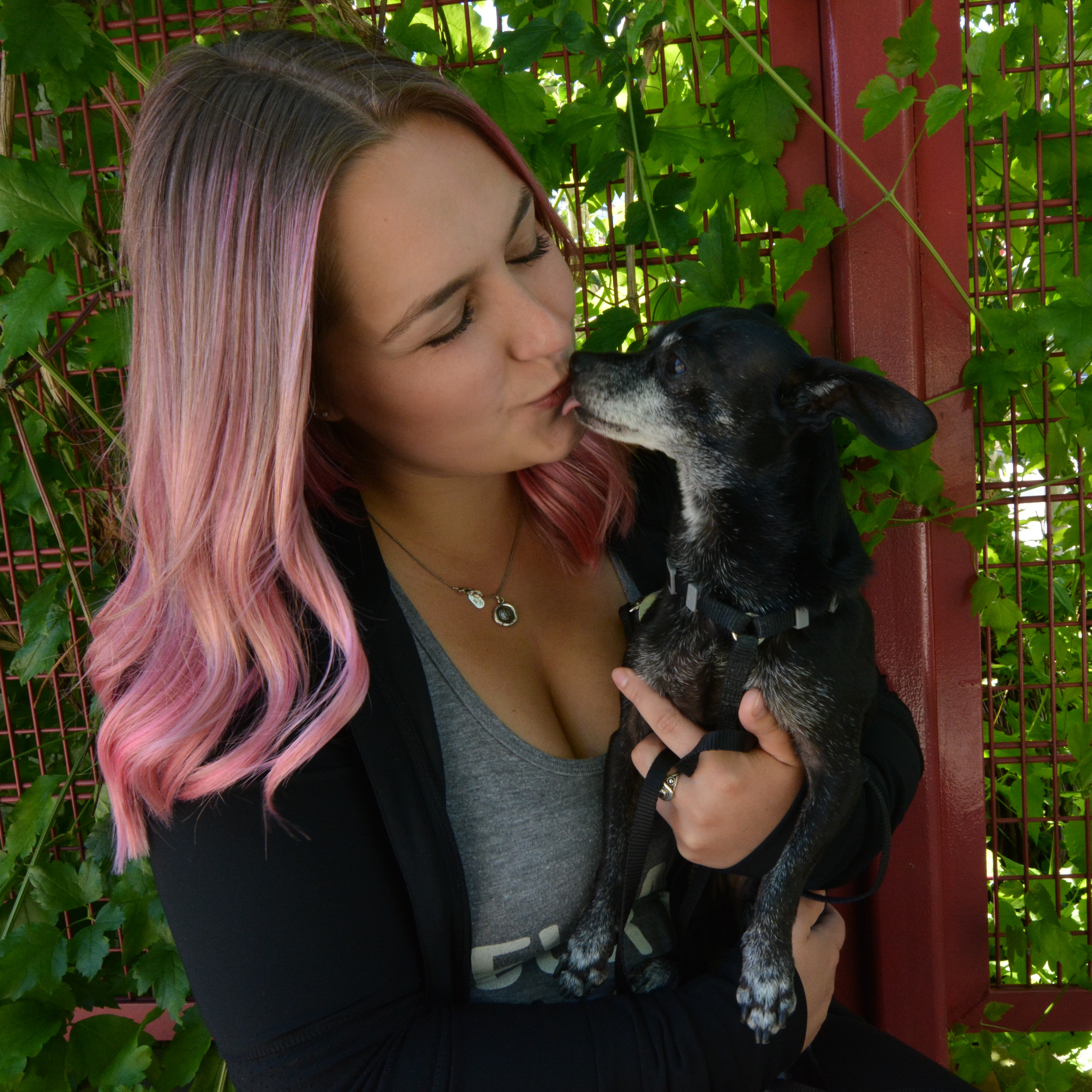Does your dog bark, lunge or growl on walks? Do you feel embarrassed with your dogs behaviour? You're not alone, I once felt the same way about my dog. When I first got my dog, Larry, 7 years ago I was not a dog trainer and did not have the knowledge I do now. He would pull on leash, bark at everything the entire walk, and was not even enjoying himself. I now have the tools and skills to manage my reactive dog as well as help him feel safe and comfortable on leash. I'd like to help you get to that place with your dog too.
In this series you will learn about:
- What Reactivity Is
- Being An Advocate
- Equipment To Use and What Not To Use
- Eye Contact
- Targeting
- Basic Dog Body Language
- Keeping Your Dog Under Threshold
- Engage and Disengage
- How To Get Out When Your Dog Is Over Threshold.
- Real Life Training
- Trigger Stacking
- Decompression
Reactivity is when a dog has any reaction (barking, lunging, whining, growling ect.) to something they perceive as a trigger (dogs, bikes, squirrels ect). Reactivity can cause emotional distress to your dog such as fear, anxiety and frustration. You may be feeling a lot of these emotions too. The process of counterconditioning and desensitization takes time and commitment. Keep your expectations realistic and be patient.
Your dog is a sentient being on their own with thoughts and feelings that affect their actions. Be understanding and compassionate, you and your dog are on the same team, advocate for them. Be mindful and aware before deciding to put your dog into any situation. Could this cause a reaction where my dog will have a negative emotional response? Supporting your dog's emotional well being is worth letting go of any expectations you may have.
Before we get into training you'll need a few tools. We will be using food your dog enjoys as a reward throughout this process. For my dog we use cut up hot dogs or boiled chicken exclusively for reactivity training. You'll need a treat pouch for quick and easy reinforcement. I recommend using a front clip harness and a regular flat leash. I do not recommend using any retractable or bungee leashes, they are difficult to handle, can cause injury and encourage your dog to pull on leash. Avoid any choke, prong or ecollars. These tools instill more fear and stress in your dog without teaching them what we want them to do.
After reading this I hope you are ready to dive into some hands on training in the next 3 posts. Have your treats, treat pouch, harness and leash ready!

